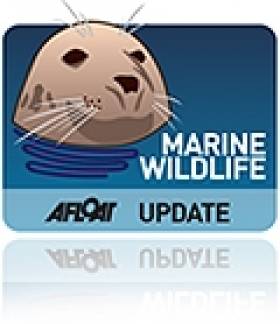Displaying items by tag: Phaeocystis pouchetii
Algal Bloom On East Coast Beaches Under Observation
#AlgalBloom - The Marine Institute says it is currently monitoring an algal bloom on beaches on the east coast of Ireland as a part of its Phytoplankton Monitoring programme.
The bloom was detected two weeks ago using satellite images and information provided by the Environmental Protection Agency (EPA) and Wexford County Council.
The Marine Institute has analysed a number of samples from the algal bloom and has identified the species as Phaeocystis pouchetii, a common species that has caused blooms along the east coast several times in previous years. The species causes discolouration of the water, and foaming on the beach in windy conditions.
Joe Silke of marine environment and food safety services at the Marine Institute emphasised that the species is not directly harmful to humans either through swimming or from consuming fish that have been exposed to the bloom.
Beaches remain safe despite any discolouration of water, though the production of foam, and in some extreme cases anoxia, can result in marine organism mortalities.
However, unlike last summer's destructive algal bloom on the west and north coasts that was responsible for significant fish and shellfish kills from Galway to Donegal, fish mortalities caused by this particular species in previous Irish blooms have not been observed, as wild fish tend to avoid the bloom. This may explain the low catches reported by sea anglers on the east coast in recent weeks.
Several fishermen have also reported clogging of nets in recent weeks, which may be caused by the decaying bloom sinking to the seafloor.
Algal blooms are commonly detected over the summer months in coastal areas. It is likely that this particular bloom will dissipate in in the next week or so and will be replaced with the normal succession of microalgae that form the bottom of the food chain in the sea.






























































